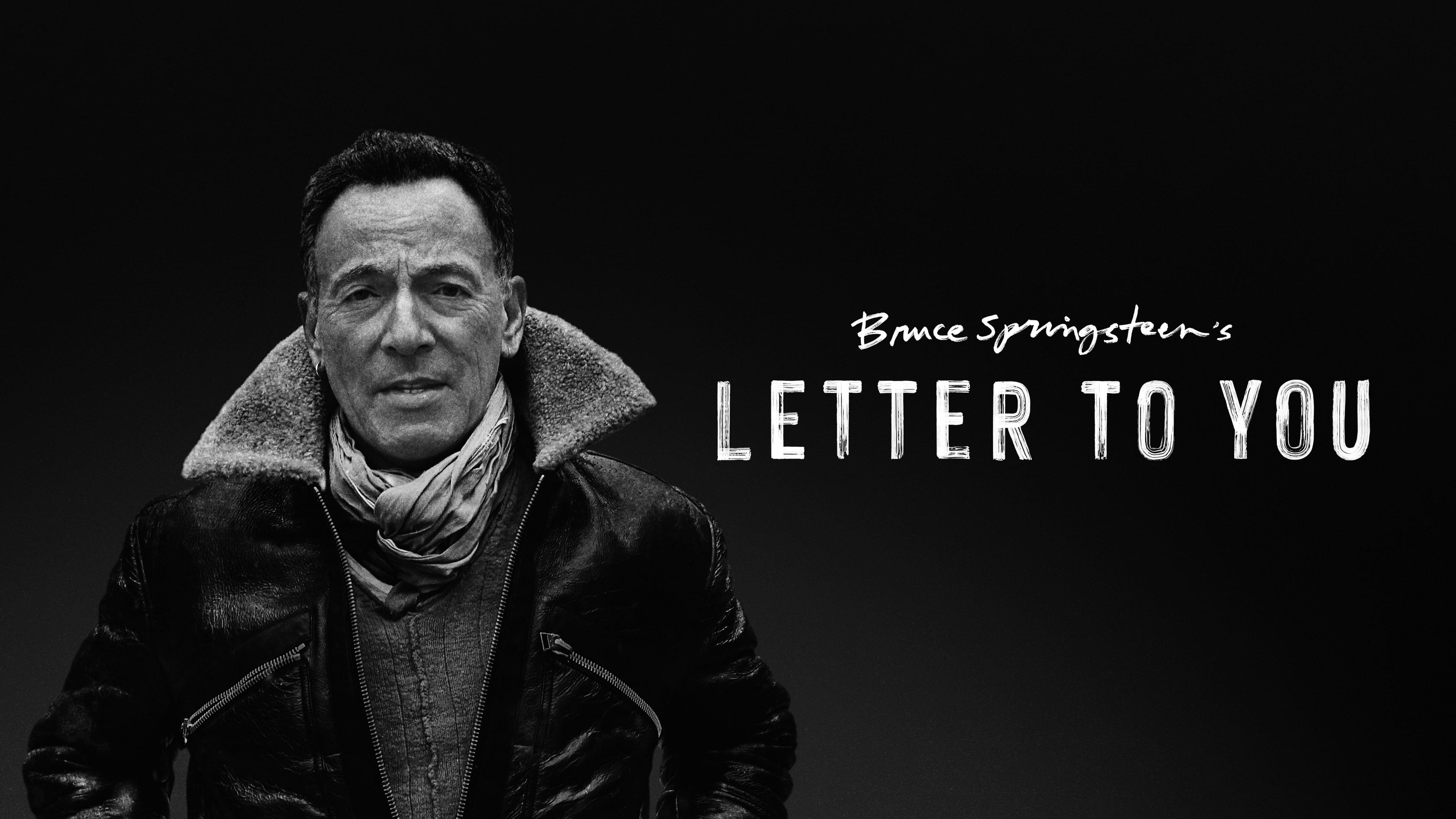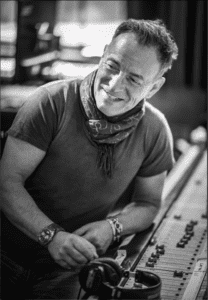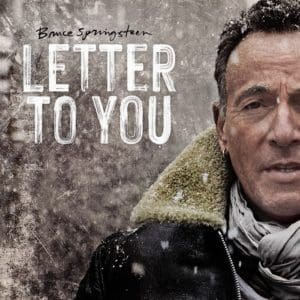
Letter to You, the new album from Bruce Springsteen and the E-Street Band, is easily one of the band’s best complete records in decades. It’s hard to even utter that statement given that the band has seemingly only become more popular since their reunion nearly 20 years ago. Yet, when you think about it — when was the last great E-Street record?
Wrecking Ball (2012) was definitely a mixed bag. “We Take Care of Our Own” was definitely a powerful yet bit on the nose anthem and this writer will always have a soft spot for Irish-influence on “Death to my Hometown” — but overall that album lacked that E-Street oomph. Subsequent Bruce and E-Street records have been as equally uneven. 2014’s High Hopes was a so-so amalgam of covers, rarities and odd experiments like the “Bruce on Bourbon Street” inspired title track with a Tom Morello guitar solo injected into it. 2019’s solo effort from The Boss, Western Stars, was his attempt at sweeping, sonic portrait of the austere American West in the vein of Glen Campbell, but ultimately felt like an incomplete thought.
Letter to You feels completely different from these past three records. There’s this rejuvenated gusto to the sound of the E-Street Band. It’s tighter, more bombastic and it harkens back to the energy and soul of their records from the ’70s and ’80s but tempered with nearly five decades worth of knowledge reigning in their excesses. Lyrically, Springsteen’s jump out more profoundly than in years past. It’s not hard to feel deeply moved and emotional after listening to this record in its entirety — no matter how many times you spin it or stream it.
But the big question is — why? Why this record more than the others? The answer lies in AppleTV+’s documentary Bruce Springsteen’s Letter to You, directed by Thom Zimny. The film serves as a director’s commentary from Springsteen about the whole record. If you enjoy the record watching documentary is an absolute must as it’s one of the few ‘making of’ music documentaries that takes you into a writer’s souls and not just his process. That’s an audacious statement, of course. However, Bruce Springsteen’s Letter to You is more than a documentary and even more than a commentary. It’s almost an audio visual journal, bordering on confessional than a “here’s the BTS of us in the studio” film.
In the beginning of the documentary, The Boss talks about how creating music, for him, has always been an attempt at a conversation. If you listen to his music you know this to be true. It’s conversations about politics, the working class, the Jersey Shore, love, heartbreak, America and war. While these conversations have been had with millions upon millions of people, none of them are as universal and salient as this one in Letter to You. That’s because this conversation is not being had between the audience and Bruce from the Jersey Shore or Bruce the working man, Bruce the political activist, or Bruce the rock star. This is between the audience and Bruce Springsteen, a 71-year-old man who has watched so many of his closest friends and family pass away. It’s a 71-year-old man reflecting on his life and what may come of it in in his remaining years. It’s a conversation about the ever after and if it even exists.
The conversation of mortality, especially in a time where we are surrounded by a pandemic and living in a time of social, political and environmental upheaval is a universal conversation. It’s hard to poke holes and take shots at Springsteen’s thoughts and meditations because this is a conversation we all have had to experience through the loss of our own loved ones or one we’re eventually going to have. There’s no snide remarks of “limousine liberal” when he discusses politics or eye-rolling at a man with millions talking about the common man. This is Bruce, a man, a human, talking about something that is inevitable for us all.

The documentary, shot in stark black and white, reflects all of this. It has a nostalgic feeling of a band who (minus 40-year-old sax man Jake Clemons), grew up watching black and white television and reading black and white newspapers. The close-ups show how the years have physically taken a toll on the members of the band — their hairlines receding or disappeared, the veins and bones more apparent on their hands and the leathern cracks in their voices as they reminisce on days of glory in between takes.
Yet, the physical age of the band is immediately wiped away when the band breaks into song. This record, one that is a conversation on mortality, is not one of complete morbidity and bleakness. It’s also a revival, a celebration of the lives of those lost — in particular E-Streeters Clarence Clemons and Danny Federici as well as Bruce’s bandmates in his first band The Castiles. The songs and the vibrance of them are tributes and homages to these lost lives. The same electricity they captured nearly five decades before at the shore bars of Asbury Park is reborn, at least for one more time, as the proper sendoff to the people they love.
One of the most fascinating things about the Letter to You documentary is how all of this impacts Springsteen. Long takes of The Boss staring into the middle distance as he listens back to songs or decompresses between takes, shows this warmth, appreciation and love he has for his bandmates and the time he has (left) with them. Read any Springsteen bio and you’ll hear of The Boss’ obsessive nature during recording as he would use endless takes to perfecting each moment. Now, and this could be thanks to editing, but not only are he and the band in lockstep, but you can see the joy imbued in Springsteen after the completion of a song. You can hear the pride in his voice after the band takes a celebratory drink after each song’s in the books. The slow smile that scrawls upon his face and whispered words of thanks are often juxtaposed by the bombastic nature of his righthand man Steven Van Zandt, who serves as The Boss’ jocular voice of reason and the much-needed comic relief in the documentary.
Letter to You could’ve been a lay up record for The Boss discussing the turbulent times we live in. Hell, he could’ve gone and crafted a big Jersey Shore rock ‘n’ roll record that would get people dancing to take our minds off the heavy in the world. However, would either of those concepts have worked or been as impactful and meaning as the subject matter of this record? Letter to You isn’t directly addressing these times, but in this conversation about mortality and the ever-after, it feels like The Boss is talking to us about finding the good out there, finding empathy, doing what’s right and embracing the positives in the life, and maybe that will begin the ripple effect of creating a better world.
Springsteen fans, Letter to You, is the record and the film, you’ve been waiting for from Bruce Springsteen and the E Street Band for a long time. If you’re not a fan of The Boss, maybe this is the album and the documentary to start with it.



Comments are closed.